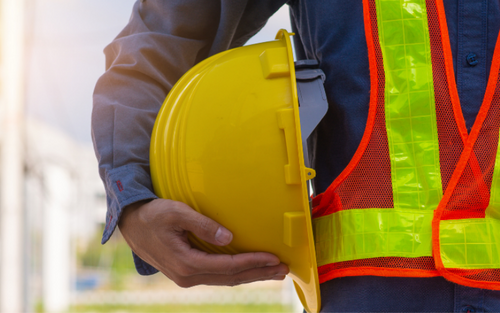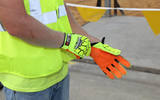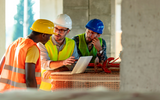What Should Your Gas Detection Program Include?
Your gas detection program should do everything possible to ensure your workers remain protected from the dangers of hazardous gases. Protecting workers requires more than just making sure they have a gas detector, and sending them on their way—to ensure safety, there’s a lot to do behind the scenes before anyone sets foot on the worksite. The following four key factors should be considered when setting up or re-examining your gas detection program.
The Right Equipment
Your gas detection equipment and monitors should detect the types and concentrations of gases your workers are likely to encounter. If you’re wondering how to select the right gas monitor for your company, keep in mind the gas detector you choose should be designed to withstand your environment and the activities your workers will be engaged in. This is especially important for workers in confined spaces, anyone doing remote sampling, and those using multi-gas monitors for multiple purposes. When appropriate, and to ease training concerns, choose features that will enable you to use a single monitor across an array of situations. You should also look for these features:
- A long sensor life
- Durability if dropped, and resistant to spray, dust and submersion
- Batteries that last at least through a full shift before charging is required
- Clear communication of information, from alarms to screen displays to linked software
- A manufacturer’s warranty—a high-quality product is unlikely to need significant repairs or replacements during its service life, but it’s great to have the backing of a company that stands behind its products.
Training and Understanding
Even if you have the best equipment, it won’t mean a thing if workers don’t know why it’s important or how to use it. Anyone who’s going to be working with these devices and technologies must have the training they need to make safe choices that are in line with your workplace policies and local requirements. Training should include not only instructions on how to use the device, but also the signs of wear and tear to look for, and how to bump test or calibrate it. It’s also important to maintain records, especially if there’s compatible software involved. Workers should also be aware of relevant site conditions before they start working. Training, however, doesn’t mean “one and done.” It is also important to refresh everyone’s memory whenever new equipment or procedures are implemented, or annually just to make sure that safety is at the front of everyone’s minds.
Rigorous Maintenance
Even the highest-quality gas detection technology will need some fine-tuning once in a while. Everyone who comes in contact with your gas detectors should be involved with the maintenance process, from when they clock in at the start of a shift to cleaning up and clocking out at the end of the day. Gas detectors should be charged and bump-tested before each use, and recalibrated if they aren’t responding properly. Advanced gas detection equipment will have automated test systems in place to assist with the process of calibration and bump-testing, as long as everyone remembers to use them. Newer detectors will even alert you when they’re ready to be used, bump tested or calibrated, so that you can double-check your records. Speaking of records—be sure to document everything. It’s better to have more information than not enough when it comes to maintaining life-saving equipment. An upstanding dealer or supplier will offer strong warranties, customer service, technical support, and servicing and repairs, which can make maintenance even easier.
A Human Factor
Safety products are designed to keep humans safe when used effectively and properly. Humans are the ones who need to be protected, and they’re also going to be the ones using these products: so, it’s important not to overlook the human factor in a gas detection program.
Human support is also among the most crucial gas detection program requirements. Having safety experts that can easily be reached, especially those knowledgeable about the equipment you’re using, and the conditions you’ll be working in, will help your gas detection program to remain effective.
PK Safety can be that partner. For over 70 years, our safety experts have personally vetted thousands of worker safety products, including gas detection equipment and confined space gear, from the most popular brands in protection. We’re also a Factory Authorized Service Center for BW Technologies by Honeywell, RAE Systems, and RKI Instruments. and we have certified technicians in-house who have been trained by the manufacturers. Our website blog posts and other information are available 24/7. You can contact us online or by phone at 800.829.9580.
Recent Posts
-
ANSI/ISEA 138 Safety Gloves: Ensuring Hand Protection
The human hand is an anatomical masterpiece and arguably the greatest tool attached to our bodies …Jun 25th 2024 -
June 2024: National Safety Month
June is recognized as National Safety Awareness Month and focuses to help "keep each other safe f …Jun 4th 2024 -
10 Ways to Prevent Wildfires
You can prevent wildfires by extinguishing flames before you leave the worksite. Avoid practicing …Jun 3rd 2024





